Kinmen capsizing incident: Mainland China closer to 'administrative reunification' with Taiwan?
Lianhe Zaobao associate editor Han Yong Hong looks at the recent incident of a mainland Chinese fishing boat capsizing off Kinmen after a chase with Taiwanese coast guard, leading to the death of two fishermen. Is mainland China using the crisis to create a new baseline to Beijing's advantage?
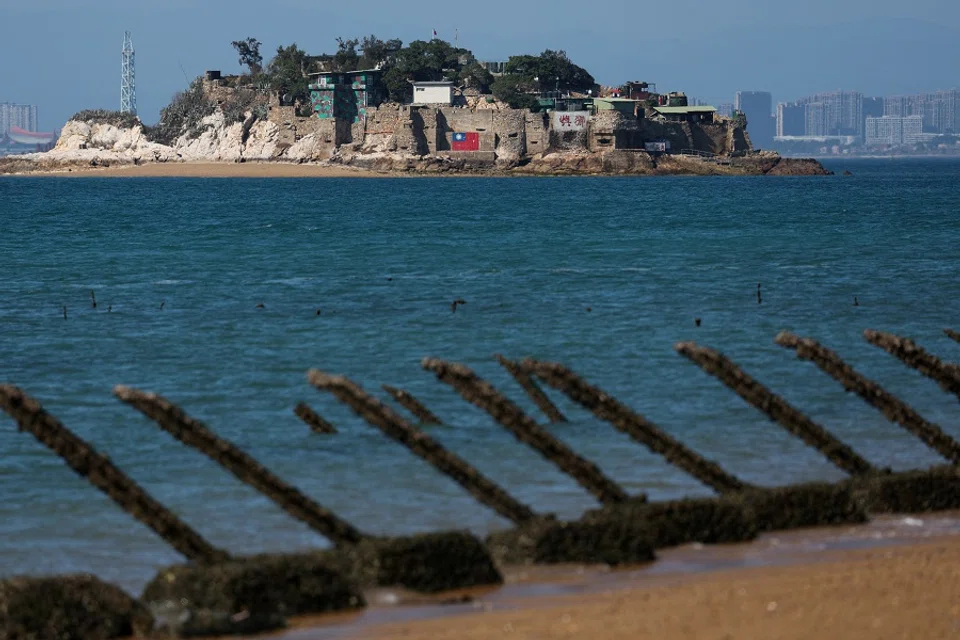
After simmering for days, the incident of a mainland China boat capsizing off Kinmen on 14 February, the fifth day of the Chinese New Year, has escalated into a highly tense situation for both sides of the Taiwan Strait.
As the incident continues to unfold, Taiwan's jurisdiction over the waters around its outer islands is being rewritten, while the US has intervened, with the State Department stating that it is "closely monitoring Beijing's actions" and calling for restraint and no unilateral change to the status quo.
Seven days after the incident, the two surviving Chinese fishermen finally returned to mainland China on 20 February. They appealed to mainland Chinese media, saying their boat only capsized because a Taiwan Coast Guard Administration (CGA) patrol boat collided into it. According to sources from Taiwan last week, all four mainland China fishermen fell into the sea after the boat capsized; CGA patrol officers managed to save two of them, but the others did not survive.
Claims of collision
The harrowed expressions of the surviving fishermen as they were interviewed were heartwrenching, and their claims of being "collided into" caused an even bigger uproar. Setting aside the controversy of what caused the capsizing, this was an event involving human lives, yet Taiwan officials did not express a single word of condolence to the deceased fishermen for many days, adding to the mainland's dissatisfaction and anger.
Moreover, the mainland Chinese fishing boat overstepped by just 0.86 nautical miles, and could simply be expelled; why then was there a need to intercept and board the vessel for checks?
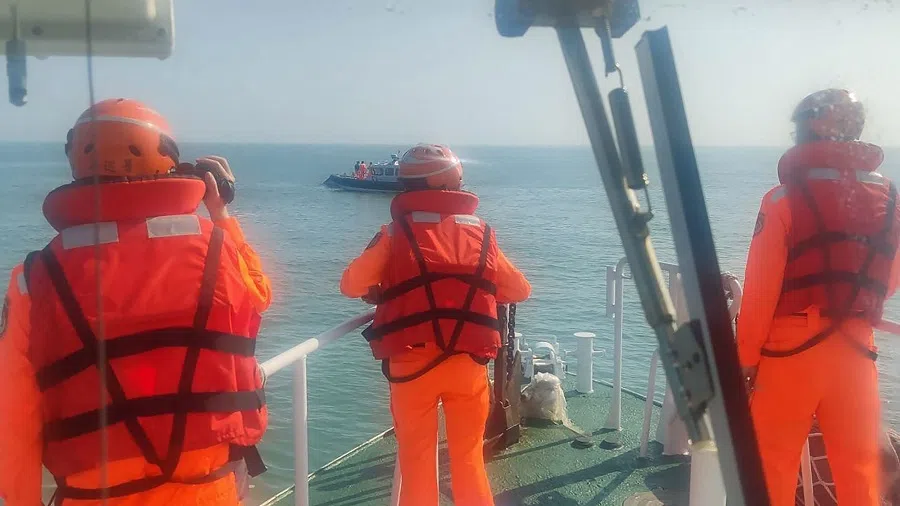
There are many unanswered questions in this complex incident. On 14 February, the mainland China fishing boat crossed the line against regulations and entered into Taiwan's prohibited and restricted waters. Initial statements from Taiwan's CGA were that a CGA patrol boat attempted to intercept the fishing boat, but the mainland fishing boat "tried to escape in a zigzagging fashion to avoid boarding and inspections, and unfortunately capsized in the process", without any mention of the collision.
It was only when the mainland China fishermen returned home that Taiwan's CGA admitted on 21 February that there were "collisions". The CGA then held a press conference on 22 February explaining that the mainland fishing boat "tried to escape in a zigzagging fashion several times" and on a sharp right turn its stern collided with the CGA patrol boat, causing it to capsize.
This was to clarify that the mainland Chinese boat capsized because it collided with the patrol boat due to its own actions. The CGA has also for the first time pledged to offer condolence payments, with the exact sum to be determined after the conclusion of the investigations. The CGA said it hopes the incident can go back to being a case of law enforcement, with no escalation of tensions and more importantly, without involving politics.
Delayed response, unexpected consequences
However, for the CGA to issue a response only now, it is already late. It also did not dispel doubts from external observers, including why the Taiwan CGA patrol boat had no video, audio, or black box data of the incident that could be publicly revealed. Moreover, the mainland Chinese fishing boat overstepped by just 0.86 nautical miles, and could simply be expelled; why then was there a need to intercept and board the vessel for checks?
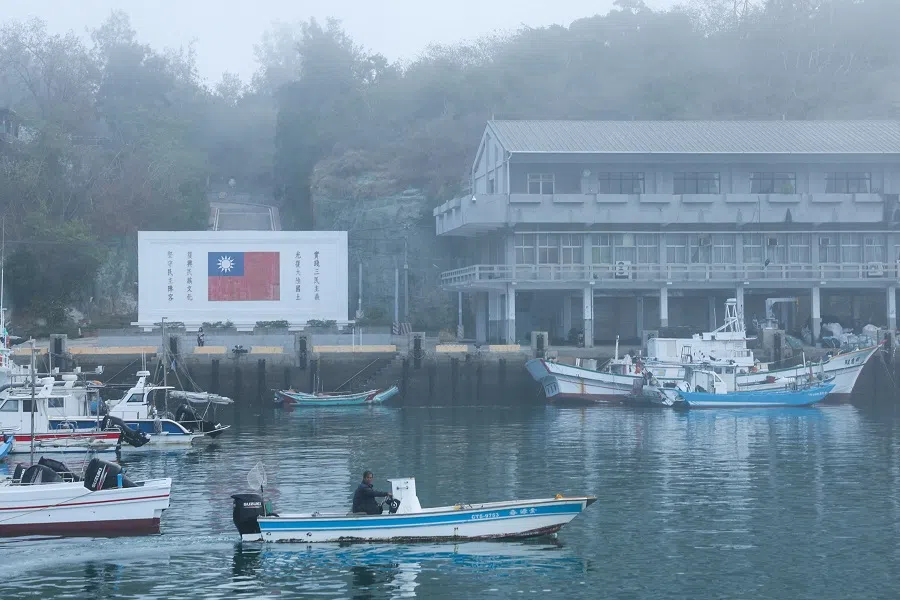
The Taiwan authorities likely did not anticipate that this exercising of their jurisdiction would end up causing Taiwan's demarcation of prohibited and restricted waters in the Kinmen-Xiamen waters, and even the waters around other outer islands, to be denied and written off by mainland China.
With its coercive moves, the mainland is making it clear in a high-profile manner that it no longer recognises banned or restricted waters in the area around Taiwan islands such as Kinmen, as delineated in the 1992 Cross-Strait Act.
Recounting the day of the incident, mainland China's Taiwan Affairs Office (TAO) on 14 February "strongly urged the relevant parties in Taiwan to immediately investigate the incident" and to "ensure the personal safety of mainland fishermen", as well as to effectively prevent the recurrence of such incidents. On 17 February, Zhu Fenglian, spokesperson for the TAO, went one step further in saying "there has never been such a thing as 'off-limit' or 'restricted' waters" in the fishing zones.
On 18 February, mainland China's coast guard announced that it would carry out regular law enforcement patrols and inspections in the waters around Kinmen and Xiamen, and the mainland's coast guard and surveillance ships entered Taiwan's "restricted" waters three days in a row.
On the afternoon of 19 February, the mainland Chinese coast guard even boarded a Kinmen tourist boat, sparking panic. With its coercive moves, the mainland is making it clear in a high-profile manner that it no longer recognises banned or restricted waters in the area around Taiwan islands such as Kinmen, as delineated in the 1992 Cross-Strait Act.
Apart from Kinmen, two mainland Chinese coast guard vessels and a surveillance ship were also spotted near Taiwan's offshore island of Matsu on 21 February. Unofficial online news also reported that mainland Chinese coast guard vessels were patrolling near Kinmen's Wuqiu township.
Taiwan observers and Western academics are on high alert that mainland China is using the crisis to create a new baseline to Beijing's advantage.
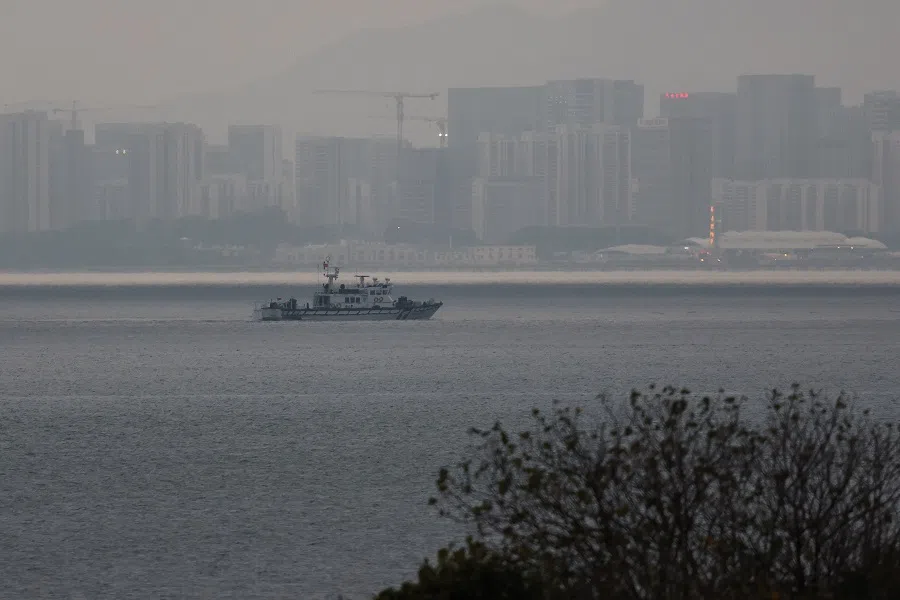
Taiwan's CGA and the Mainland Affairs Council did not appear to be handling this crisis seriously, while the top leadership team and National Security Council made no moves as well. In contrast, Taiwan observers and Western academics are on high alert that mainland China is using the crisis to create a new baseline to Beijing's advantage.
What comes next
Many would recall that mainland Chinese warplanes regularly flew over the median line of the Taiwan Strait following then US House Speaker Nancy Pelosi's visit to Taiwan in 2022. Taiwanese military observer Chieh Chung analysed during an interview with Voice of America that compared with mainland China's air drills around Taiwan, it is more difficult for Taiwan to handle the law enforcement patrols of the mainland Chinese coast guard, firstly because the tonnage and size of the mainland's coast guard vessels far exceeds that of Taiwan's; and second, because Taiwan also runs the risk of escalating the conflict if it rushes into an intense confrontation with the mainland's coast guard.
Chieh also analysed that while mainland China's air drills around the island mainly has a safety and psychological impact on Taiwan, the mainland coast guard's patrols and inspections in the waters around Kinmen and Xiamen are a direct challenge to Taiwan's jurisdiction and even its right to govern. As soon as the tacit understanding between both sides of the Taiwan Strait not to overstep each other is broken, it would be difficult for Taiwan to assert its rights from a legal standpoint.
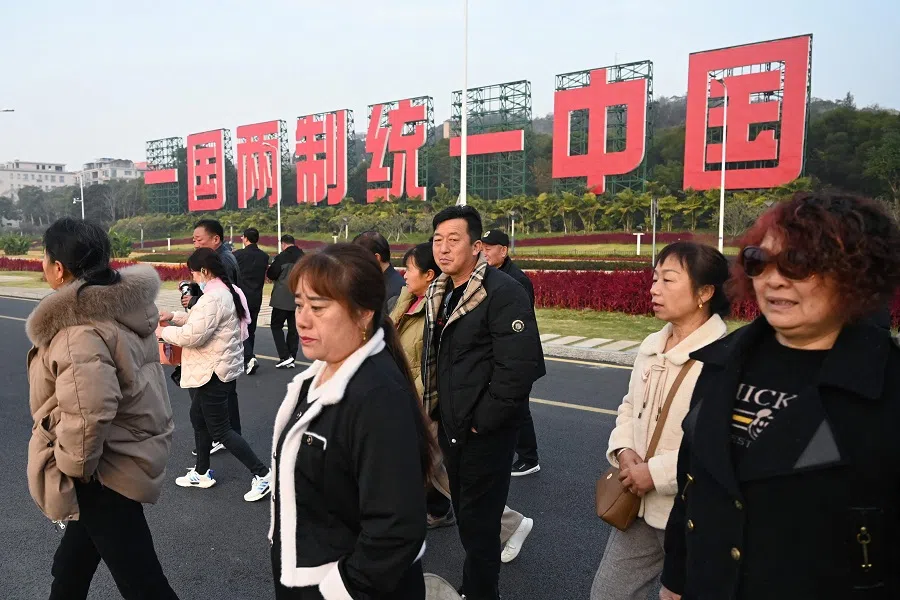
To mainland China observers, this incident is a good opportunity for mainland China to advance "administrative reunification" (行政统一). Mainland Chinese WeChat official account "Ming Shu Za Tan" (明叔杂谈) recently reintroduced the "administrative reunification" proposal he made last August, that is, effectively bringing Taiwan's sea and airspace under the de facto administrative jurisdiction of mainland China.
While it will not be that easy for mainland China to reduce Taiwan's jurisdiction to eventually achieve reunification, this strategy is enough to put pressure on the Taiwan government and greatly reduce the space for "Taiwan independence".
While this looks like a procedural and technical change that might prompt the US to criticise Beijing for unilaterally changing the status quo in the Taiwan Strait, there is no war after all, and the US will not be able to make a big deal out of it. Ming Shu Za Tan thinks that this "salami slicing" approach can be used to "gradually implement China's sovereignty and governance over Taiwan".
While it will not be that easy for mainland China to reduce Taiwan's jurisdiction to eventually achieve reunification, this strategy is enough to put pressure on the Taiwan government and greatly reduce the space for "Taiwan independence".
Looking back on the capsizing, it may not have been Beijing's intention to escalate the situation - the mainland's TAO initially only wanted Taiwanese authorities to promptly disclose the truth and facts. However, the crisis was not dealt with early enough, resulting in today's situation. Now, it is Taiwan that has suffered damage to its jurisdiction, while the risk of cross-strait confrontation has escalated again, casting a shadow over the prospects for peace, which is not good news for all countries in the region.
This article was first published in Lianhe Zaobao as "金门翻船让大陆反切香肠推"行政统一"".





